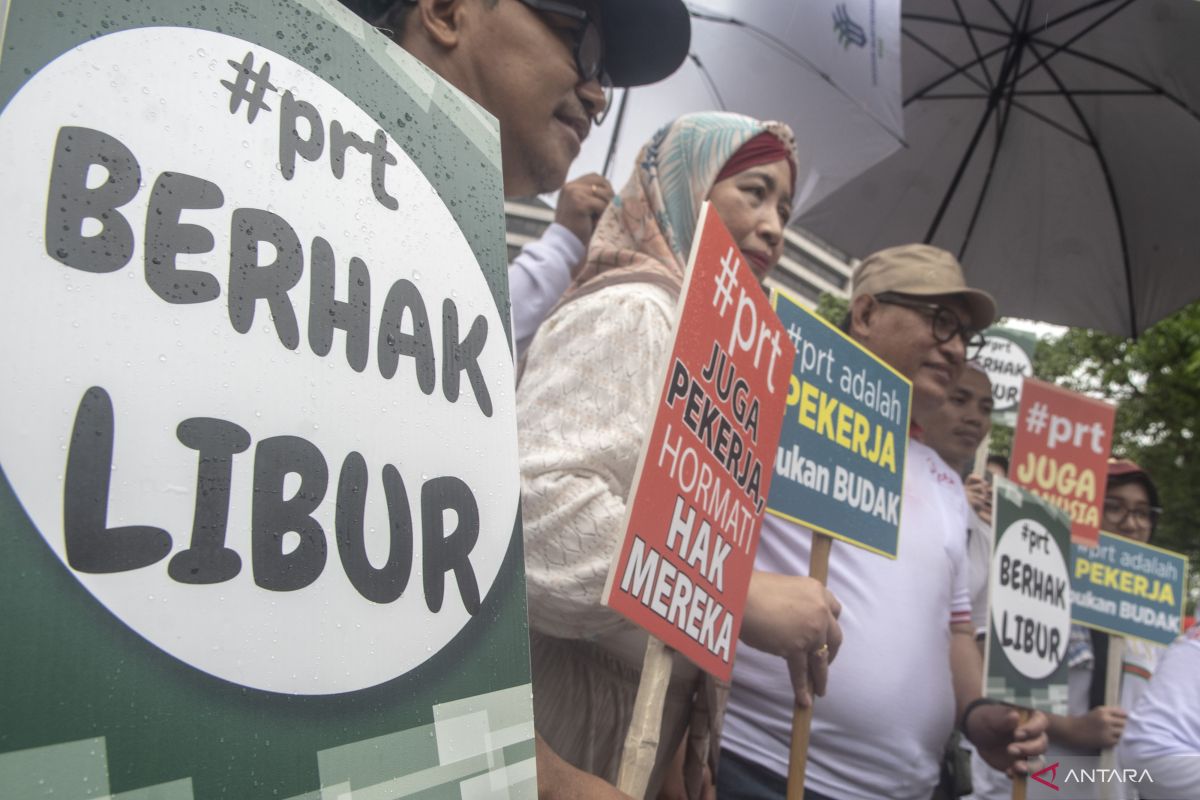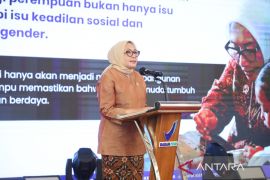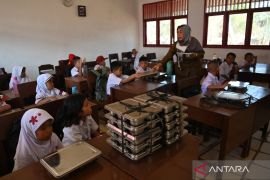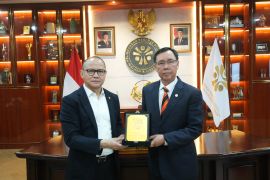The bill, which was first proposed in 2004, has been included in the National Legislation Program (Prolegnas).
However, the bill's legislative process is currently still stuck in the House of Representatives (DPR).
For ratification, the bill still needs to pass several stages—such as harmonization, establishment as an initiative bill of the DPR, level 1 discussion, and level 2 discussion—for which the target is still not clear.
The DPR has been pushed by several parties to ensure the prompt ratification of the bill, which is deemed essential for protecting domestic workers from various forms of violence and providing legal certainty to domestic workers and employers.
Apart from the goal of protecting domestic workers, the bill also highlights the aim of achieving social justice.
From 2017 to 2022, the National Domestic Worker Advocacy Network (Jala PRT) recorded at least 2,637 cases of violence against domestic workers, including economic violence (not receiving a salary and getting a salary cut), mental violence, physical violence, and sexual violence.
The Ministry of Manpower is one of the ministries tasked by President Joko Widodo (Jokowi) to prepare strategic steps to get the PPRT bill ratified quickly.
The Ministry of Manpower has held several focus group discussions (FGDs), both internal as well as with relevant stakeholders.
Manpower Minister Ida Fauziyah said that her ministry is ready to discuss the PPRT bill. Currently, the government is still waiting for the decision of the DPR.
The ministry has also expressed its readiness to discuss any issues that become subjects of debate in the DPR considering the urgency for the bill's passage because it is part of Indonesia's development priorities.
DPR Deputy Speaker Sufmi Dasco Ahmad said that the discussion on the PPRT bill will be continued again after the DPR's recess period ends. The recess will end on March 13, 2023.
According to Ahmad, the DPR will schedule a leaders' and DPR's deliberative body's meeting, which is planned to discuss various things that are still hanging or were not settled in the previous session period.
Crucial bill
A member of the National Commission on Violence against Women (Komnas Perempuan), Theresia Iswarini, said that it is crucial to ratify the PPRT bill into law because it is also part of efforts to free Indonesian girl children from violence considering that there are many of them who are already involved in domestic labor.
The ratification of the bill will help Indonesian girls to escape from trafficking or situations that cause them to lose their right to education and right to a better life in the future.
Within the framework of the Convention on the Elimination of All Forms of Discrimination Against Women (CEDAW), the presence of a legal basis to protect Indonesian domestic workers is an issue that continues to be questioned.
The passage of the PPRT bill will strengthen Indonesia's image at the international level in terms of domestic workers' protection.
DPR Deputy Speaker for industry and development coordination, Rachmat Gobel, said that it is crucial to discuss the PPRT bill because it is related to the legal guarantee for Indonesian domestic workers abroad.
Thus, the protection must start from home so that when they work abroad, they are also legally protected.
To this end, the DPR is committed to striving for the protection of domestic workers in Indonesia.
The PPRT bill will provide not only protection, but also encourage a bigger role for domestic workers, wherein they will not merely be seen as helpers but as partners, considering that domestic workers' role is quite significant in realizing the welfare of the families they work with.
The bill is also designed to create work relations and situations that are mutually humanizing, supportive, and protective for domestic workers and employers.
Member of the Legislative Body (Baleg) of DPR, Taufik Basari, said that the PPRT bill has gone through law formation procedures.
The bill finished the harmonization process at the Baleg of DPR on July 1, 2020, and it was decided that it proceed to the next stage, namely the plenary meeting to make the bill a DPR initiative bill. However, it still has not been realized as a DPR initiative bill until now.
The journey of the PPRT bill to becoming law is, indeed, still long.
Currently, the bill is still in the initial stage. After it becomes a DPR initiative bill, it will be sent to the government, and the government will send a presidential letter and the problem inventory list (DIM) and appoint the party that will discuss it with the parliament.
Basis for protection
Secretary general of the Manpower Ministry, Anwar Sanusi, emphasized that the acceleration of the PPRT bill's passage can become the basis for regulating and managing issues in the employment sector, especially in protecting domestic workers in Indonesia, whose number has crossed 4 million.
With the presence of a law on domestic workers' protection, issues related to domestic workers can be resolved, and there will be a legal basis for that.
The government has the responsibility to support the PPRT bill’s passage into law.
Regarding Indonesian domestic workers abroad, the Indonesian government has continued to prioritize protection as an inseparable aspect for Indonesian migrant workers in the domestic sector.
The good practices that have been implemented so far are expected to push the prompt ratification of the PPRT bill, which has been waiting for 19 years to become law.
Related news: Deliberation of bill on domestic workers postponed: DPR Speaker
Related news: PPRT bill deliberation to continue after recess: DPR
Related news: Assembly urges House to swifty deliberate bill on domestic workers
Translator: Zubi Mahrofi, Raka Adji
Editor: Azis Kurmala
Copyright © ANTARA 2023











